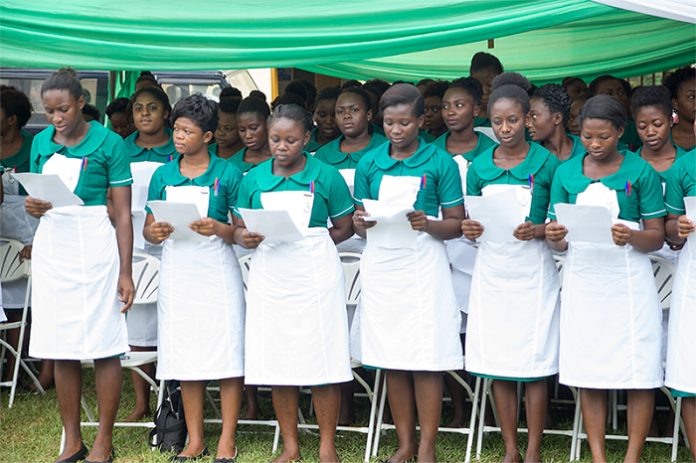The recruitment of nurses by high-income countries from poorer nations is “out of control”, according to the head of one of the world’s biggest nursing groups.
The comments come as the BBC finds evidence of how Ghana’s health system is struggling due to “brain drain”.
Many specialist nurses have left the West African country for better-paying jobs overseas.
This comes as the National Health Service (NHS) increasingly relies on staff from non-EU countries to fill vacancies.
Although the UK says active recruitment in Ghana is not allowed, social media means nurses can easily see the vacancies available in NHS trusts. They can then apply for those jobs directly. Ghana’s dire economic situation acts as a big push factor.
Howard Catton from the International Council of Nurses (ICN) is concerned about the scale of the numbers leaving countries like Ghana.
“My sense is that the situation currently is out of control,” he told the BBC.
“We have intense recruitment taking place mainly driven by six or seven high-income countries but with recruitment from countries which are some of the weakest and most vulnerable which can ill-afford to lose their nurses.”
The head of nursing at Greater Accra Regional Hospital, Gifty Aryee, told the BBC her Intensive Care Unit alone had lost 20 nurses to the UK and US in the last six months – with grave implications.
“Care is affected as we are not able to take any more patients. There are delays, and it costs more in mortality – patients die,” she said.
She added that seriously ill patients often had to be held for longer in the emergency department due to the nurses shortage.
Smaller clinics are also affected by staff migration because even one nurse leaving a small health centre can have a large knock-on effect.
At Ewim Health Clinic in Cape Coast, one nurse has left their small emergency department, and another has left the outpatient unit. Both nurses were experienced and had found jobs in the UK.
The chief doctor there, Dr Justice Arthur, said the effects were enormous.
“Let’s take services like immunisation of children. If we lose public health nurses, then the babies that have to be immunised will not get their immunisation, and we are going to have babies die,” he told the BBC.




















